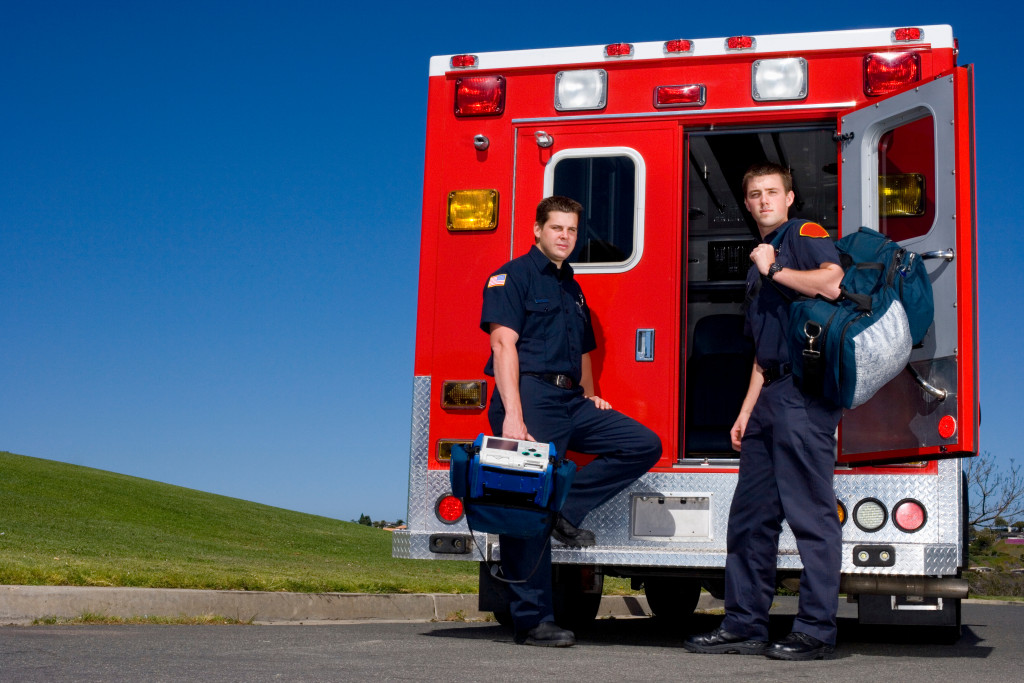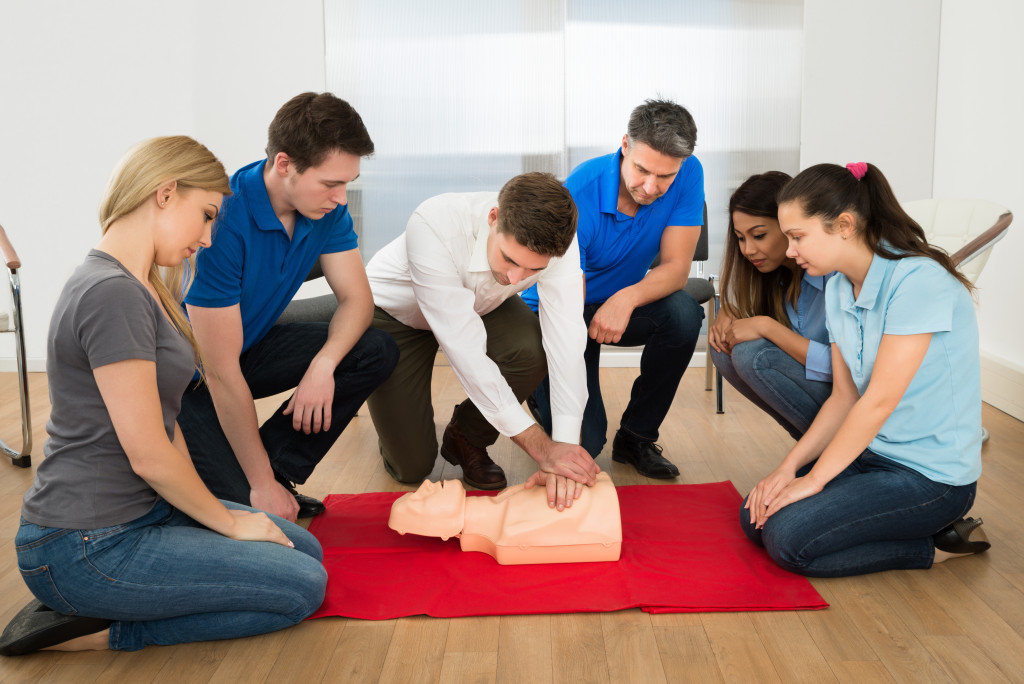- Research potential career paths within the emergency services field, like EMT, Emergency Management Specialist, and Search and Rescue Technician.
- Enhance your skillset through specialized international training and gain experience by volunteering or interning abroad.
- Networking, volunteering locally, and obtaining relevant certifications are crucial for transitioning into the emergency services sector.
- Seek mentorship from experienced professionals in the field to gain invaluable insights and guidance.
If you have always been interested in serving your community and helping those in need, then a career in emergency services might just be perfect for you. While pursuing a career in this field can be challenging, it can also be incredibly fulfilling. Emergency services are an essential part of any community, and joining the ranks of first responders and emergency managers can help you make a real difference in the lives of others. This article will explore how you can transition into a career in emergency services and begin working to keep your community safe.
Research Different Career Paths
The first step in transitioning into a career in emergency services is to research the different career paths that are available. While most people think of firefighters and police officers when they think of emergency services, there are actually many other opportunities in this field. Here are some examples:
Emergency Medical Technician (EMT)
Emergency Medical Technicians, or EMTs, are often the first on the scene when there is a medical emergency. They provide immediate care to patients, stabilize them for transport, and often work in tandem with paramedics. EMTs undergo rigorous training that includes learning how to handle a variety of medical crises, from cardiac arrests to trauma injuries. The career path of an EMT can be physically demanding and emotionally taxing, but it is also incredibly rewarding as you’re directly involved in saving lives and alleviating suffering.
Emergency Management Specialist
Emergency Management Specialists are responsible for planning, coordinating, and implementing procedures to effectively respond to natural disasters, terrorist attacks, and other large-scale emergencies. These professionals work closely with various stakeholders, such as local, state, and federal government agencies, first responders, and community members, to develop comprehensive disaster response plans.
Search and Rescue Technician
Search and Rescue Technicians are specially trained professionals who participate in rescue missions, often in extreme conditions, such as mountains, forests, or at sea. These brave individuals are equipped with advanced survival, navigation, and first aid skills to locate and rescue individuals, often in perilous situations. Often working within a team, their critical role in emergency services is not only to save lives but also to reduce the risk of further harm to those lost or injured.

Research About Specialized Trainings Abroad
In the constantly evolving field of emergency services, international exposure and specialized training can significantly enhance your skills and diversify your experience. One such specialized training is the HLTAID011 first aid training offered in Australia.
Known for its comprehensive curriculum, it equips participants with knowledge in providing a first aid response to a casualty in a range of situations, including community and workplace settings. This training is a valuable asset for those seeking to stand out in the emergency services field and can help you feel prepared and confident in your ability to respond effectively in emergency situations.
Furthermore, volunteering or interning abroad in emergency services-related organizations can also broaden your perspective and give you firsthand experience in different cultures, protocols, and techniques. This international exposure not only adds to your skillset but also highlights your adaptability and global awareness – traits highly valued in the field of emergency services.

Networking and Volunteering
Networking is a crucial aspect of transitioning into a career in emergency services. Attend conferences, job fairs, or workshops related to emergency services to meet professionals in the field, ask for advice, and learn about potential job opportunities. Here are other tips to follow:
Volunteer
Volunteering with local emergency services agencies can provide invaluable hands-on experience and insights into the realities of the job. It offers an opportunity to learn from experienced professionals, understand the daily challenges, and build your skillset. Not only does volunteering demonstrate your commitment and enthusiasm to potential employers, but it also helps you foster important connections in the sector.
Get Certified
Obtaining relevant certifications is another crucial step in transitioning into a career in emergency services. Many roles within this field require specific qualifications, such as CPR certification, EMT certification, or even a degree in Emergency Management. These certifications not only validate your knowledge and skills but also demonstrate your commitment to the field. Investigate the prerequisites for your desired role and ensure you undertake the necessary training or education.
Seek Mentorship
Seeking guidance from a mentor in the emergency services field is another effective way to transition into a new career. A mentor can provide you with invaluable insights, advice, and support based on your own experiences. They can help you navigate challenges, answer questions, and even introduce you to their professional network. Whether your mentor is a former teacher, a supervisor from a volunteer program, or a professional you admire, their guidance can play a significant role in your career journey.
Transitioning into a career in emergency services can be challenging, but it can also be incredibly rewarding. By researching different career paths, gaining international exposure and specialized training, networking, volunteering, and seeking mentorship, you can position yourself for success in this field. Remember that emergency services are a noble profession dedicated to public service, and by joining the ranks of first responders and emergency managers, you are making a real difference in your community.
